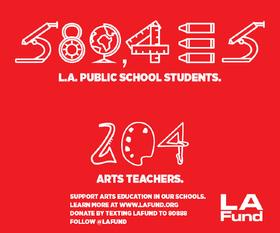Online learning has become a convenient way for many students of all ages to meet academic requirements today. However, as more of the world goes virtual, some states are beginning to require secondary students to spend at least some of their academic experience online. Idaho is the latest state to join the trend, with even stricter online requirements than their three predecessors: Michigan, Florida, and Alabama. Although Idaho legislators believe online education is the best way to prepare students for life in the 21st century, not everyone in the state is on board with the idea.
The Advent of Online Learning
Online learning is not a new concept. College courses have been available online for some time, with some universities going entirely virtual for the convenience of students. High schools have also seen an increase in online learning, which is a helpful option for students who perform better in school when they can go at their own pace. It is also essential for some students who cannot quickly get to a classroom daily due to a physical disability or other challenge.
As virtual learning continues to grow globally, it has become touted as the education wave of the future. With the ability to earn degrees online, students can now study from anywhere in the world, as long as they have a computer or comparable device and an Internet connection. Undoubtedly, online courses are reshaping how we look at academics today. However, controversy arose when legislators began mandating online learning for high school students.
The New Requirement in Idaho
Although many Idahoans were not in favor of the plan, the Idaho State Board of Education recently voted in a new rule that requires all high school students to take at least two courses online before they are eligible for graduation. According to a report in the , this rule will take effect with the class of 2016, which is now in 8th grade. The requirement is touted as the centerpiece of sweeping education reform introduced by state school Superintendent Tom Luna.
The reform plan, titled “Students Come First,” is considered one of the most radical attempts at education reform nationwide. In addition to the online course requirement, the plan includes removing collective bargaining rights from teachers, shifting to merit-based bonuses, and phasing in laptops for every student and teacher in the state. While the online course requirement is not the only aspect of the reform plan spurring controversy, there have been plenty of vocal opponents to the idea.
Opposition to Online Requirement
When the online requirement was introduced earlier this year, it faced significant opposition. According to a report in the Washington Post, those who argued against the idea voiced concerns about teachers who would be replaced by machines and taxpayer dollars that would be shifted out of state to online learning companies. However, proponents of the program argue that online courses will better prepare students for college and life outside of high school. It could also save districts a significant amount of money – no small factor at a time when budgets are already stretched beyond their reasonable limits.
“There is still a live teacher,” Susan Patrick, president of the International Association for K-12 Online Learning, told the Post in response to concerns about replacing teachers with computers. “It may be at a distance, but that teacher is still instructing and interacting with the student.”
Not everyone is convinced that online learning is the best choice for all students, so many prefer that online courses be available—but not required—as part of the high school experience. Kendra Wisenbaker, an elementary school teacher in Idaho, told the Post, “I am a little conflicted. It won’t work for every kid, and requiring it is a horrible idea.”
Although Wisenbaker acknowledged that online learning is a boon to some children, “It shouldn’t be an option for saving money.”
The Idaho Education Association is also opposed to the idea. After state legislators voted in the reform, the association released the following statement at , “Idahoans have repeatedly said since last January that the decision to take online classes should be made by students and their parents, not by the state. The Association is pleased that the State Board required two credits rather than the eight originally sought last January by State Superintendent Tom Luna. We also know that Idahoans will still have the last word on this mandate at the ballot box in November 2012.”
Other States Requiring Online Learning
While Idaho isn’t the first state to require online learning as part of the requirement for high school graduation, the two classes needed by Idaho is the most significant requirement for online courses thus far. Three other states, Michigan, Florida, and Alabama, also require some online learning for graduation, but the most a student has to complete is one class. According to the , students must participate in an online course or learning experience. The Florida legislature's website states that students must complete at least one required course online.
While online learning may be the future, not everyone can embrace this methodology as standard high school fare. In Idaho alone, the battle is far from over since voters will take their opinions to the ballot box in one year. Time will tell whether online learning requirements will survive in this state or continue in other states as well.
Questions@ Contact us on Facebook. @publicschoolreview















